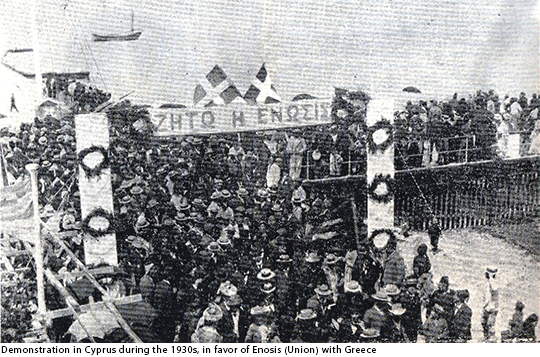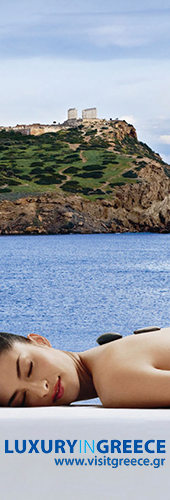- About Us
- Latest News
- Calendar
- Education
- School History
- ELA - For Toddlers
- Greek as a Second Lang.
- Greek as a Primary Lang.
- Conversational Skills (Online)
- Online Greek Courses
- Greek for Adults
- Ancient Greek
- Open Seminars
- Creative Drama
- Traditional Greek Dance
- Apply to Teach
- Holiday Program Enrolment
- Excursion - Museum
- School Polo Order Form
- Parent Notice to School
- Community Churches
- Membership
- Greek Centre
Greek Orthodox Community of Melbourne and Victoria
Event

- Title:
- Lecture: British Orientalism in Cyprus: Colonialism, Modernity, and Nationalism
- When:
- 29.08.2013 19.00 h
- Where:
- Kelvin Club - Melbourne
- Category:
- Education
Description
Lecturer: Dr Michalis Michael
Entry: Free
A lecture marking the effects of modernity on Cyprus's political culture invariably requires a postcolonial framework capable of explaining - or at least illuminating - structural processes and dynamics that underline Cyprus's colonial discourse.
Such debate involves an attempt to identify and reconcile those connections that, at first sight, are hidden from normative historiography and are often imbued by the orthodoxy of colonial presumptions. In this respect the lecture sets out to explore how an orientalist dictum permeated British political discourse and its command over a series of seminal historical junctures during its colonial rule in Cyprus.
Buttressed by structural changes and restrained by strategic considerations, the conduits of modernity and traditionalism lend residual expression to the contradictory interplay between colonialism and the assertiveness of group identity formation.
With the radicalization of Greek Cypriot nationalism, their demand for énosis morphed into an existentialist metaphor for the "Hellenic/Greekness" of Cyprus that ran contrary to the prevailing British orientalist framework.
Biography
Michális S. Michael is Senior Research Fellow and Deputy Director of the Centre for Dialogue at La Trobe University.
He has taught and published on international relations, conflict resolution, Australian foreign policy, interfaith/intercultural dialogue and the Cyprus conflict. He has been involved in various projects including 'Europe and Asia: Between Islam and the United States'; 'Australia's handling of tensions between Islam and the West since September 11' and 'International Conflict, Religion and Culture: Implications for Southeast Asia and Australia'.
He coordinates the 'Diaspora Dialogue Programme'; facilitated the 'Cypriot Academic Dialogue'; and currently heads the 'Capacity Building for Reconciling Divided Communities in Australia' project. Dr Michael's publications include: Cyprus in the Modern World (2005); Asia-Pacific Geopolitics: Hegemony versus Human Security, (co-editor, 2007); Europe between Islam and the United States (co-editor, 2008); Civilizational Dialogue and World Order: The Other Politics of Cultures, Religions and Civilizations in International Relations (2009); Negotiating History: Resolving the Cyprus Conflict (2009, revised 2011), Greek translation (Papazissis Press, 2011) and Turkish translation (Bilgi University Press, 2013).
Venue
- Venue:
- Kelvin Club - Website
- Street:
- Melbourne Place
- Postcode:
- 3000
- Suburb:
- Melbourne
- State:
- VIC
- Country:
-

The Kelvin Club, with a history dating back to 1865, is a private member's club located in the heart of Melbourne. Membership is drawn from the academic, corporate, legal, medical, arts, public service and private business communities. The Club is inclusive, with both men and women forming a stimulating and diverse community.
The inclusive environment, fine dining and comfortable facilities are ideal for members who enjoy participating in a broad range of club activities. Members can invite friends and guests to to join then in all The Kelvin Club functions. Friends and guests can become members themselves and enjoy the full range of club benefits.
EventList powered by schlu.net



